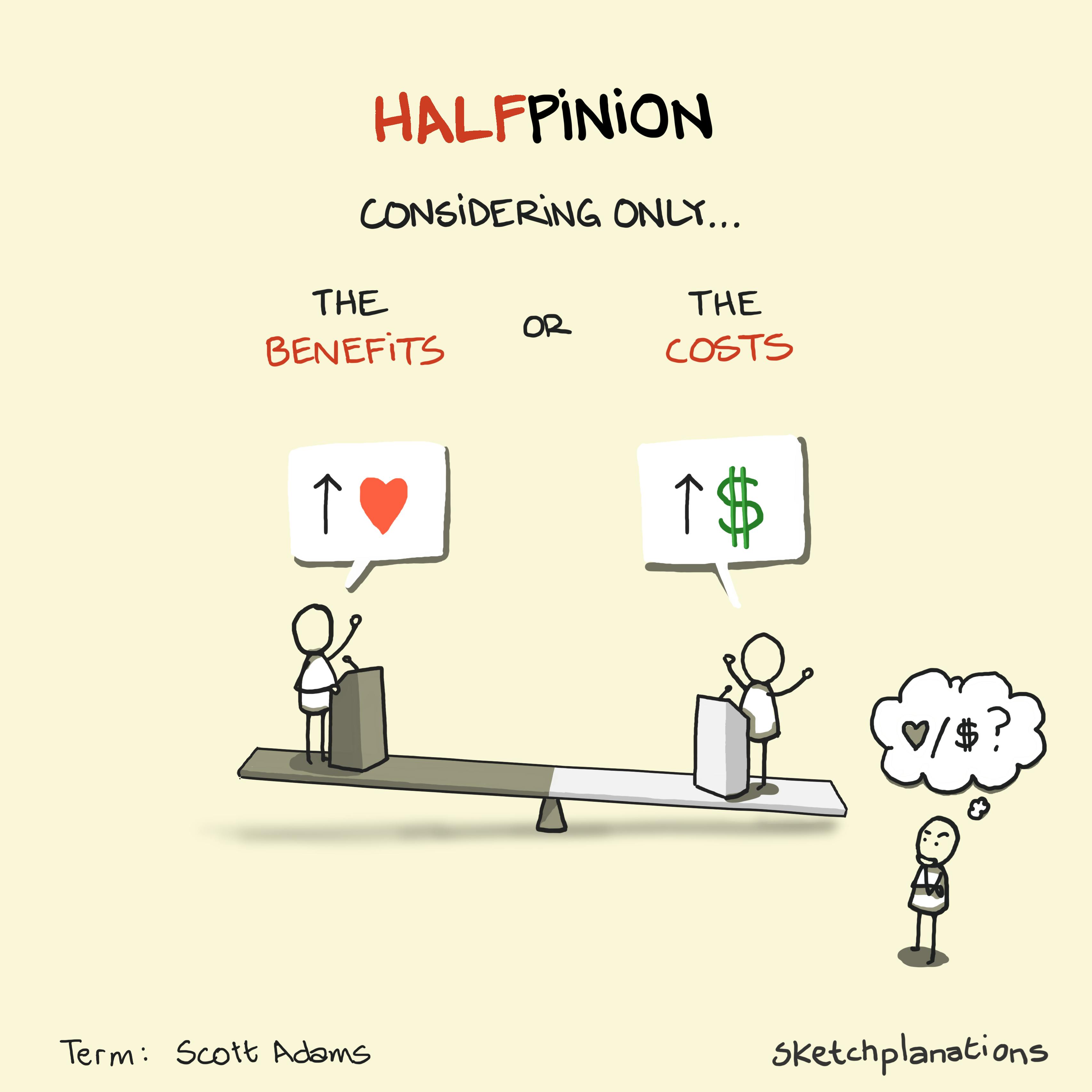Halfpinion: considering only the benefits or the costs

👇 Get new sketches each week
Governing sometimes seems easy from afar. We should spend more on education. We should pay hospital staff more. We should fix the roads. More police. Everyone should work harder. These would all be great if they were free. Unfortunately, doing more in one area often means taking from another.
What is a Halfpinion?
The reality is that most actions have benefits and costs. A halfpinion is a handy term for when someone is ignoring one half of a topic—either the costs or the benefits. When you only consider one side of an issue, often just the benefits, you don't have a full opinion, you just have a halfpinion, and can't make an informed decision.
Getting a pet, having a child, moving to the country, working remotely, working in-house versus working at an agency, going freelance, banning plastics, staying up all night, or launching a new feature — each of these has benefits and also costs.
It applies to values, too. If your company values speed, it might mean that you have to accept that not everything will be perfect. If you value quality, it won't always be the cheapest. Valuing speed while tacitly assuming that quality won't be affected is a halfpinion.
If you don't consider both aspects, you might find the grass isn't always greener. Providing a credible perspective requires comparing the full benefits of a choice to the full costs.
Now, you don't have to accept a trade-off—the benefits or the costs, or somewhere in between. In design, I learned that we innovate through resolving contradictions. In the progression of ideas, this might follow thesis, antithesis, synthesis.
Perhaps there's a creative solution to be found that gets the benefits without most of the costs. But considering only one or the other is just a halfpinion.
Related Ideas to Halfpinion
Also see:
- Confirmation bias
- Features are like pets
- The Priority No : saying yes, as long as we drop something else (one of Judd Antin ’s three types of “no”)
- Feedback analysis: predicting, comparing and learning
- Halfalogue: hearing only one side of a conversation
Halfpinion is a term coined by Scott Adams. I read about it in his book Loserthink . An example he gives is one group of people saying, "We can't do this, it's too expensive," and another responding, "But children are our future." The groups aren't so much disagreeing as pointing out one side of the issue: children are our future, and education is expensive.

